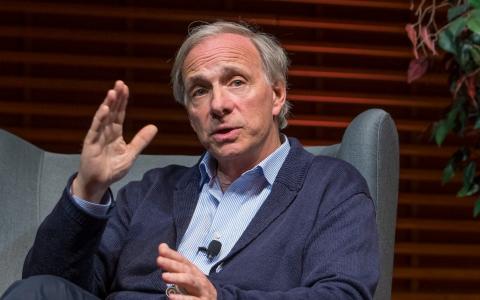
Billionaire investor Ray Dalio, whose main Bridgewater Associates LP hedge fund fell sharply amid the coronavirus-led market rout, is concerned about the combination of zero interest rate policy and the growing health pandemic, he said in a note Monday.
“I have been concerned that when the economic downturn would come, it would lead to hitting the 0% interest rate in an economic downturn with a lot of debt outstanding and big wealth and political gaps the way that configuration of events happened the 1930s,” Dalio wrote.
“The coronavirus was the thing to cause the downturn, which surprised me. While it is an extremely serious infectious disease and that will produce many harmful economic impacts, these things alone don’t scare me; however, when combined with long-term interest rates hitting the hard 0% floor, that really worries me.”
On Sunday, the U.S. Federal Reserve cut interest rates to a target range of 0% to 0.25%, its second emergency reduction in less than two weeks to help shore up the U.S. economy.
Bridgewater, the world’s biggest hedge fund manager in large part because of its reputation for predicting macroeconomic moves, was caught off-guard by market turmoil over the first half of March. Its large Pure Alpha II hedge fund, which invests across all major asset classes, had lost about 20% for year as of Thursday, according to media reports.
“We did not know how to navigate the virus and chose not to because we didn’t think we had an edge in trading it. So, we stayed in our positions and in retrospect we should have cut all risk,” Dalio said in a statement to the Financial Times on Saturday.
More recent performance was not available; the U.S. stock market surged Friday but tumbled again on Monday morning. A spokeswoman for Bridgewater declined to comment.
In the note, Dalio wrote that long-term interest rates hitting zero means that “virtually all asset classes go down” because there is little more central banks can do.
Dalio added that printing money and buying debt assets by the Fed and others “almost certainly won’t work much” and that real interest rates will likely rise because of deflation from lower oil and other commodity prices, economic weakness, and more credit problems.
“If that plays out in the typical way, rising credit spreads will raise debt service payments to weaker credits at the same time as credit lending shrinks, which will intensify the credit tightening, deflationary pressures, and negative growth forces.”
This article originally appeared on Reuters.



